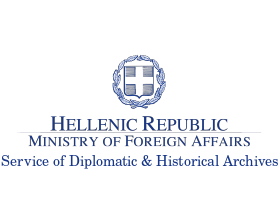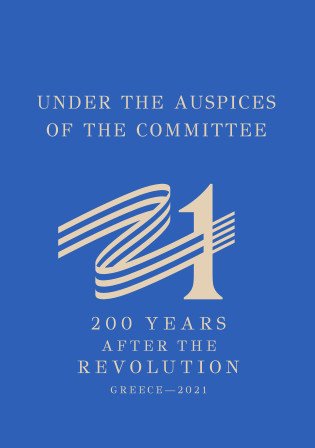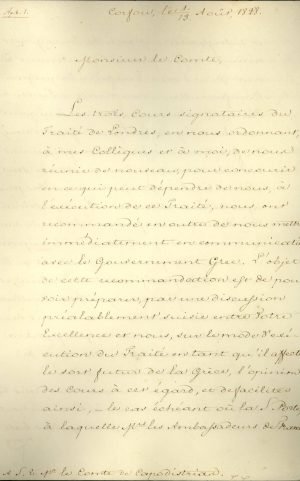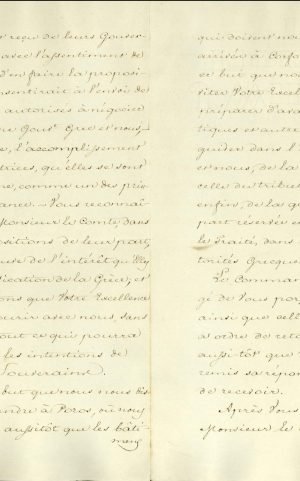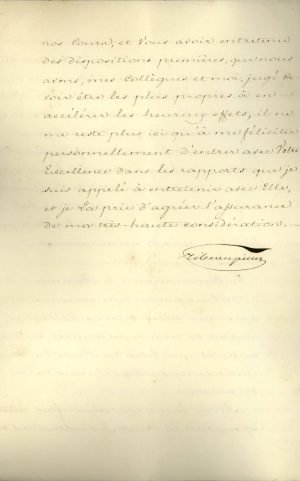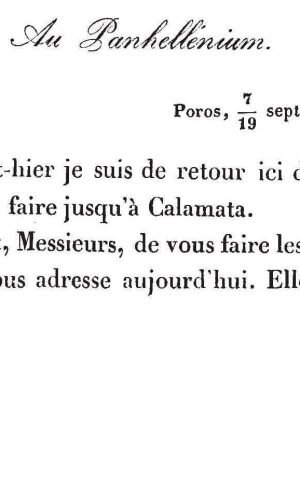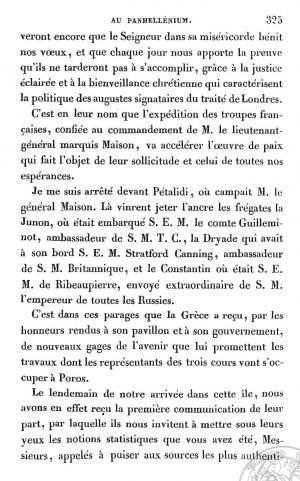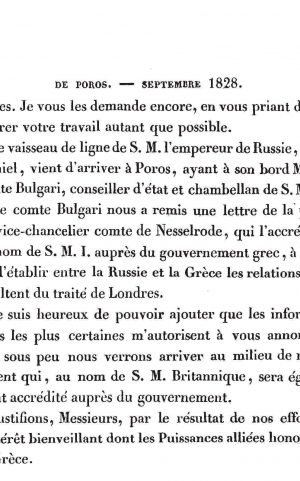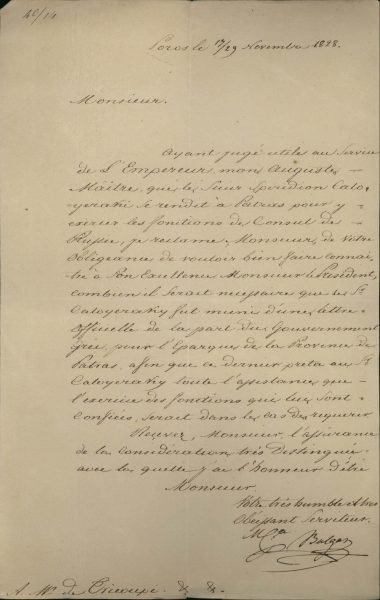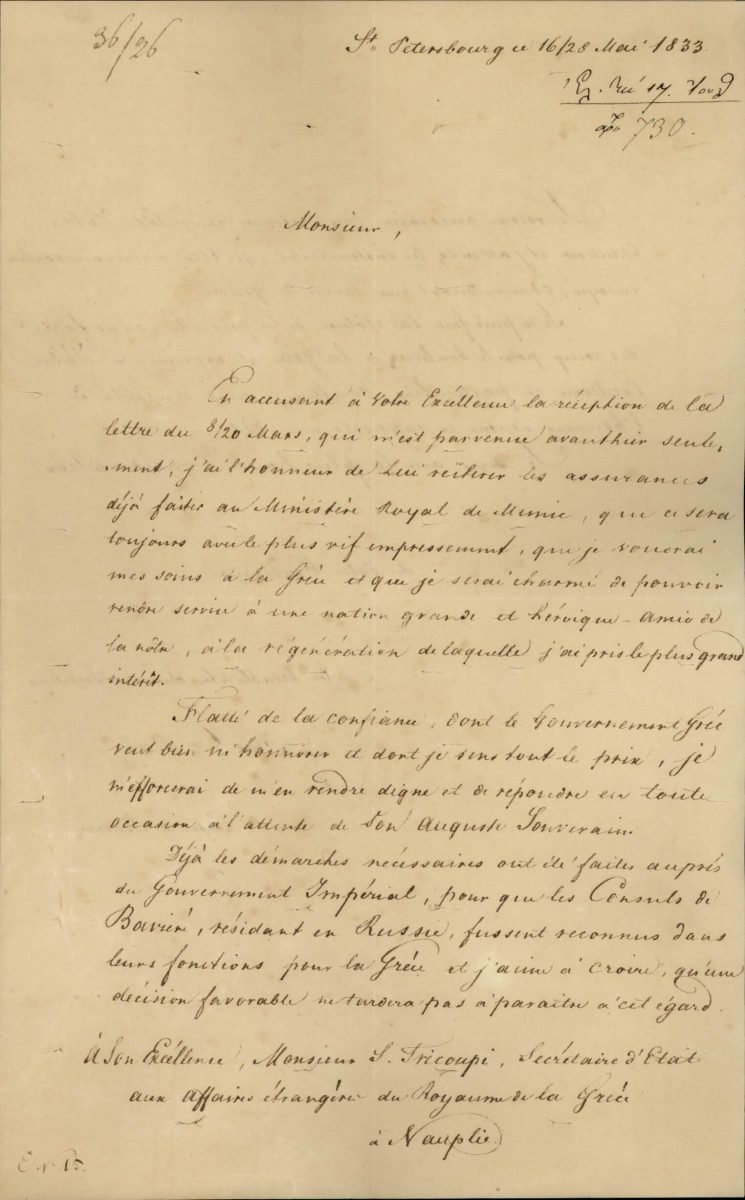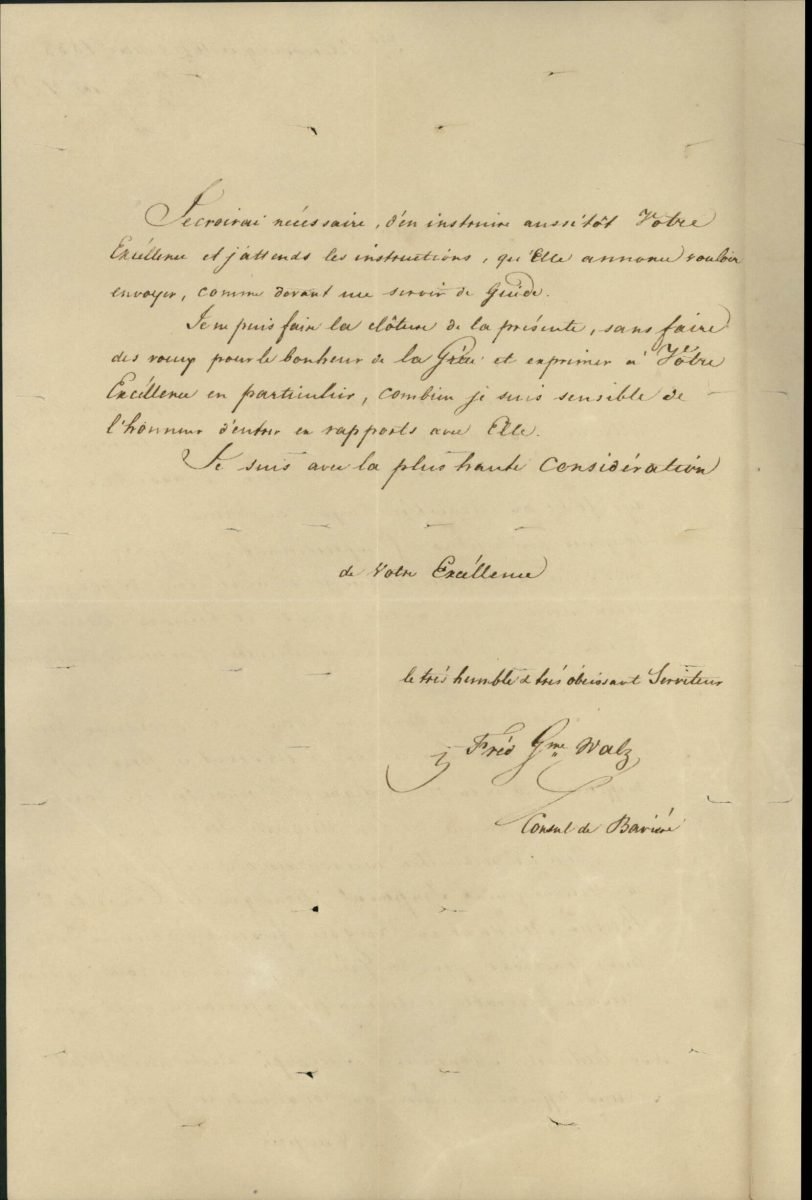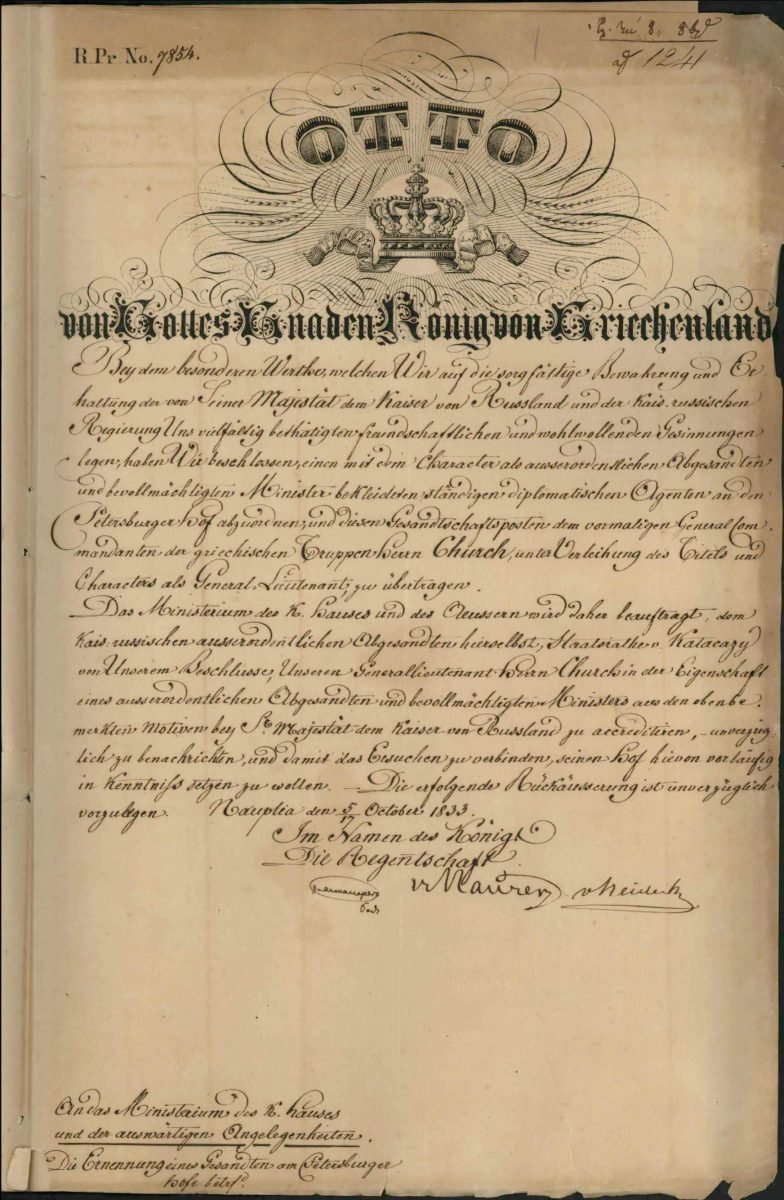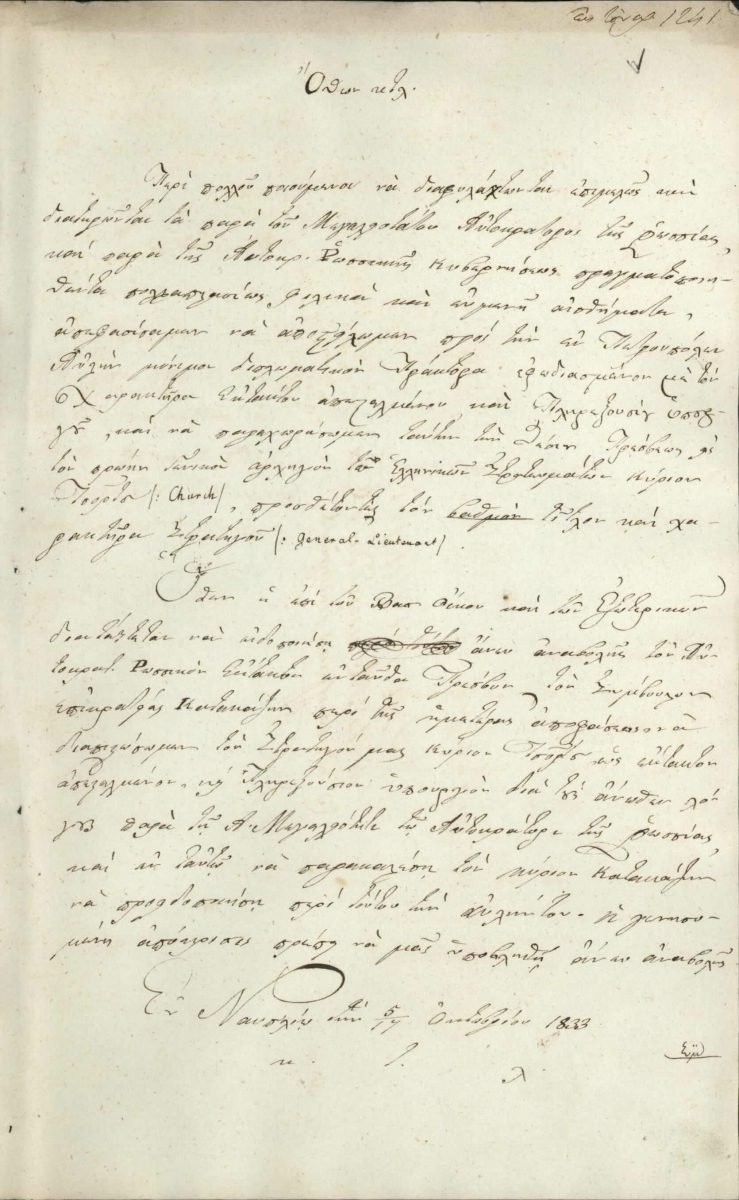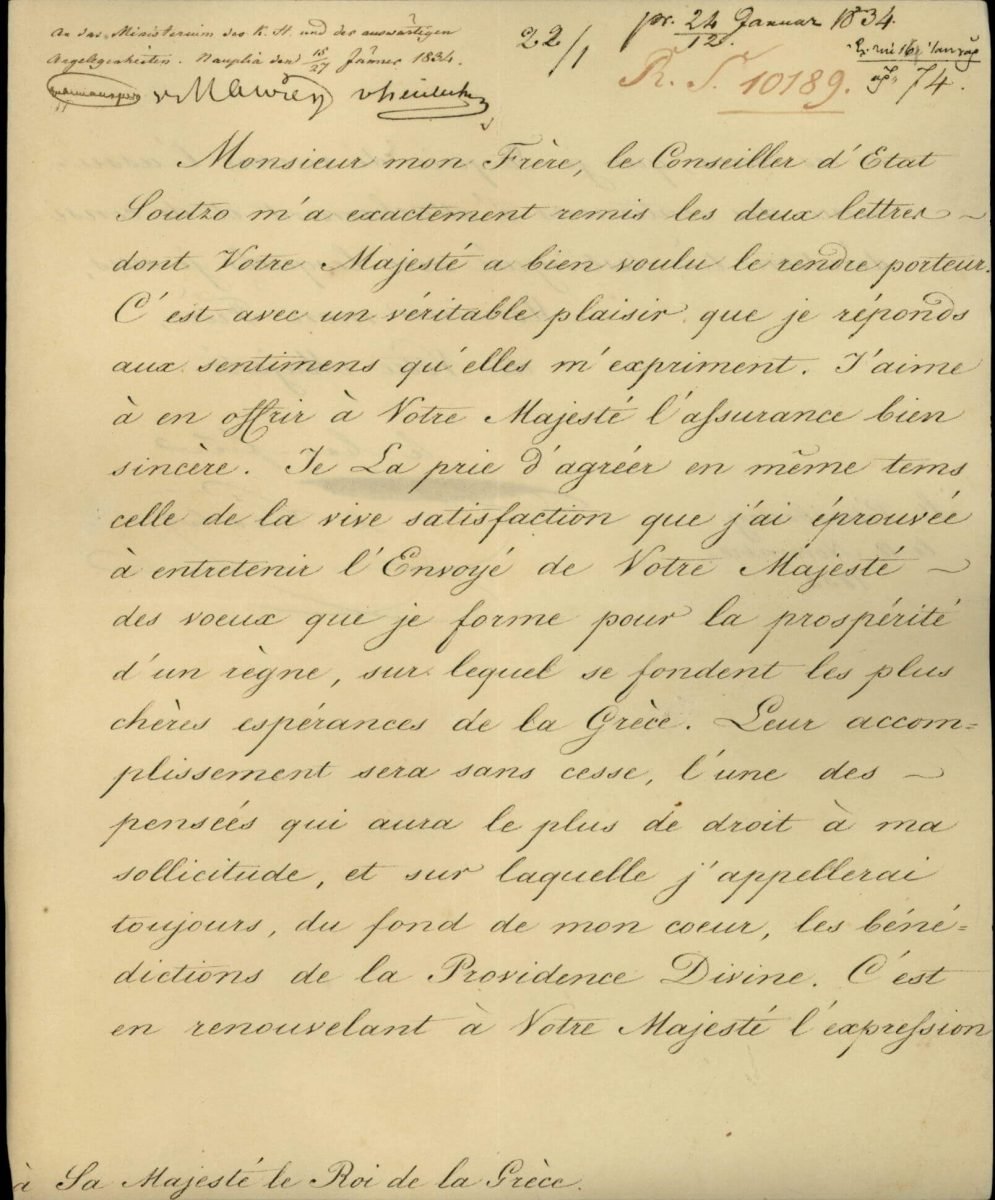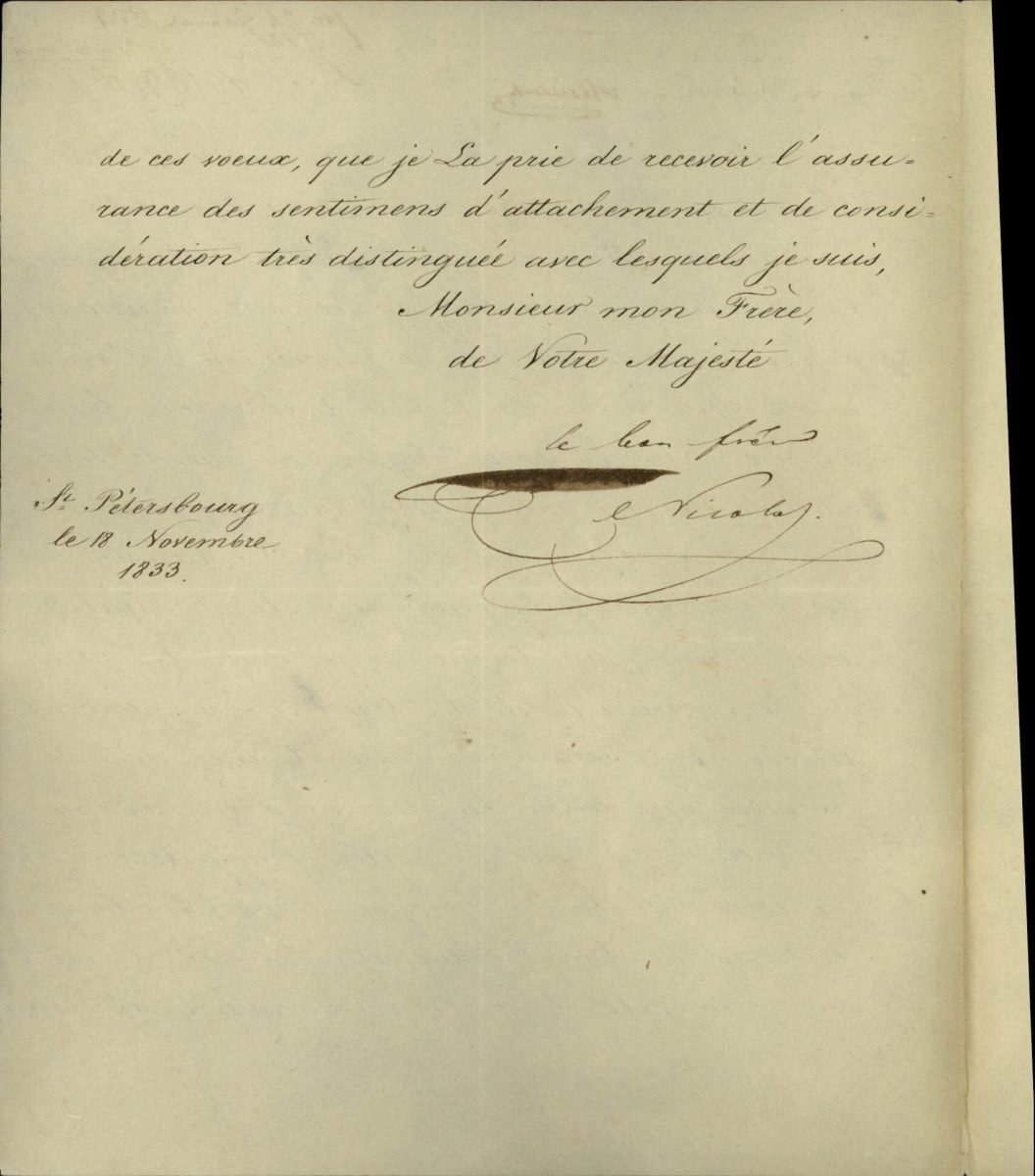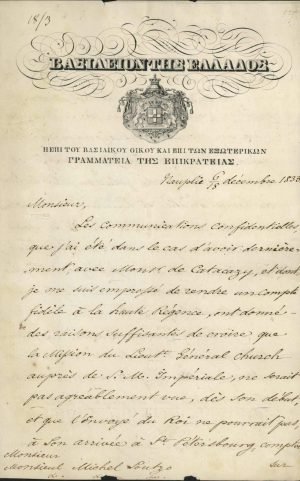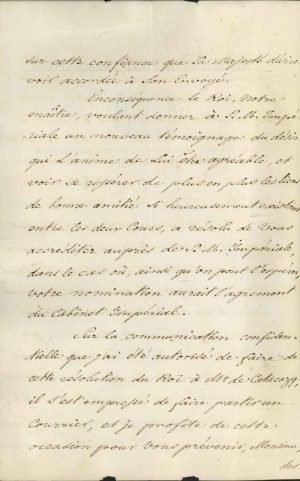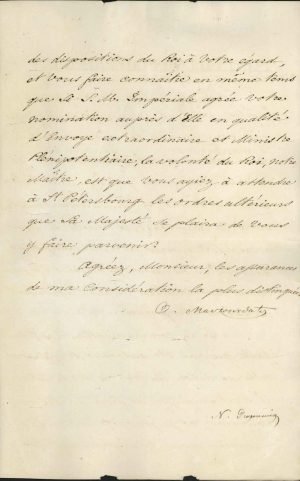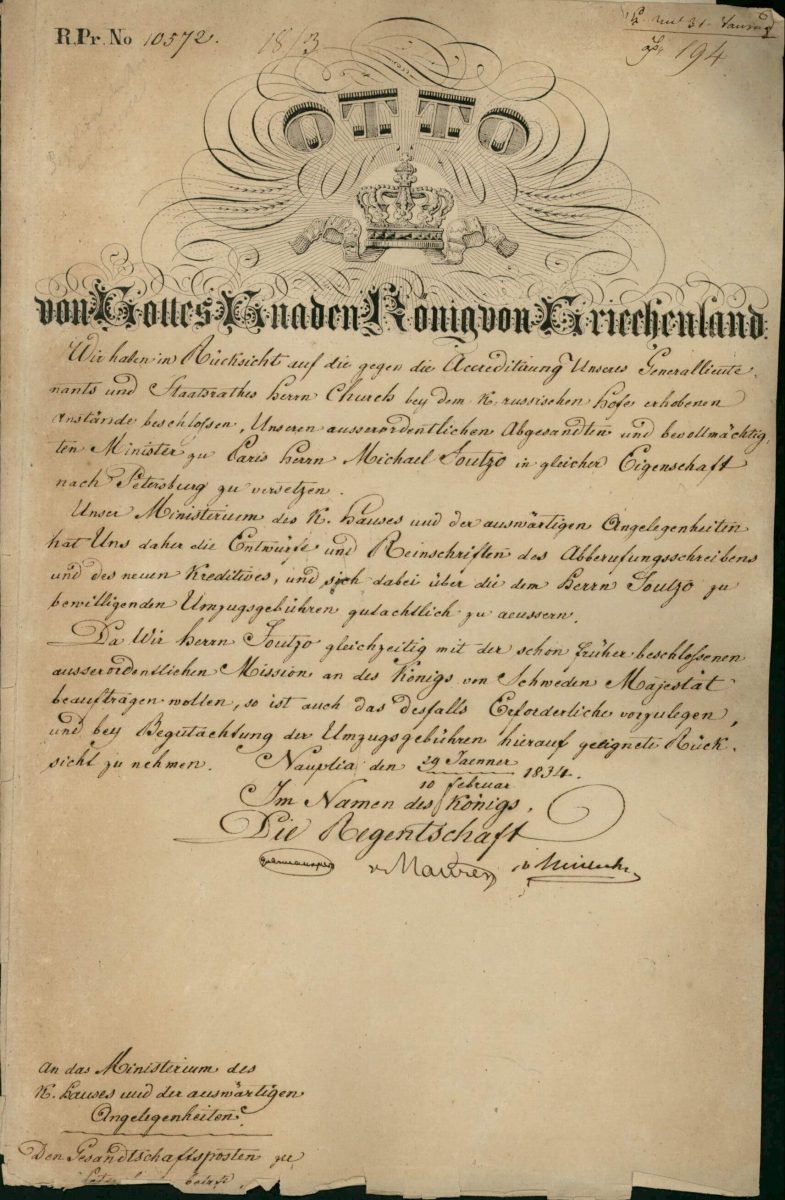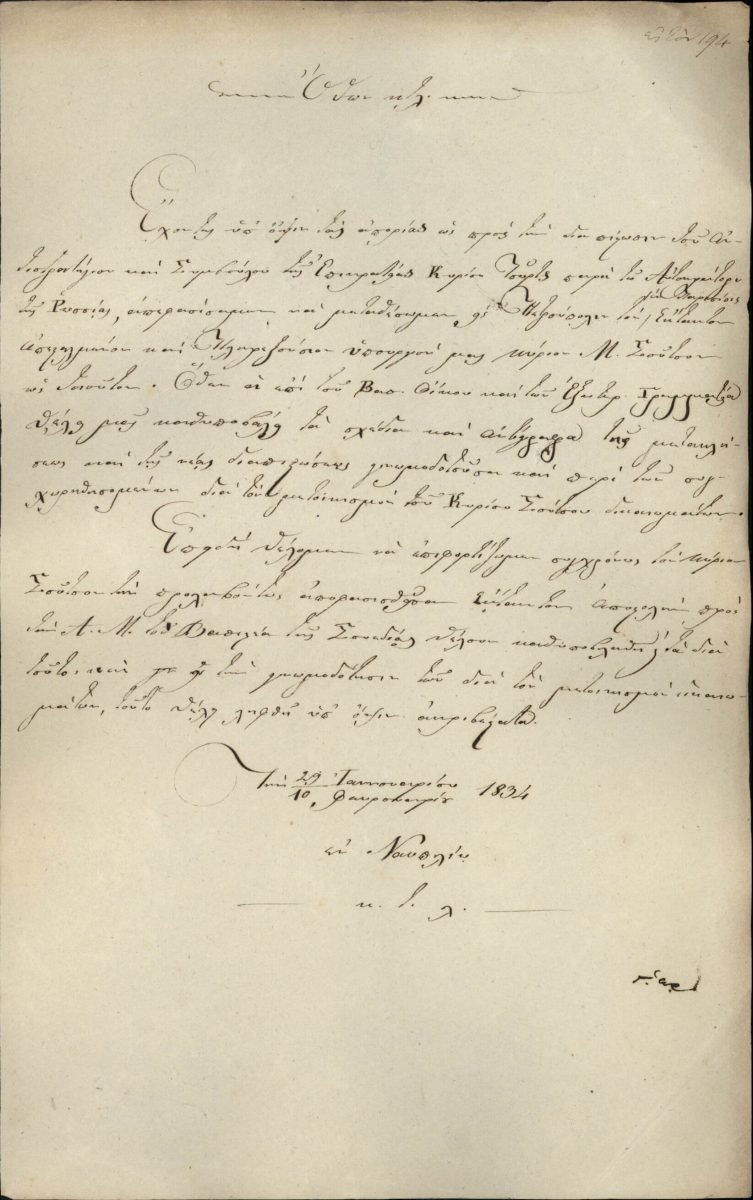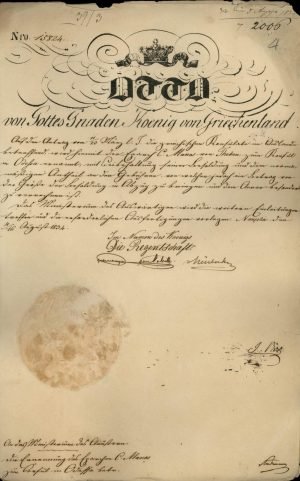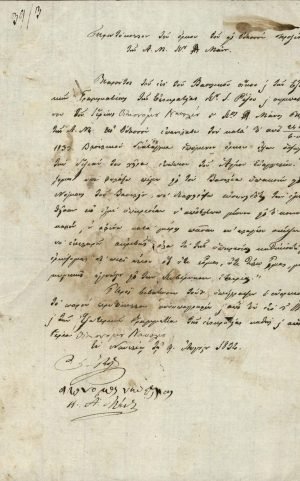1/13 August 1828. The Ambassador of Russia in Constantinople, Count Alexandre de Ribeaupierre, sends a letter to Governor of Greece Ioannis Kapodistrias from Corfu, where the Ambassadors of the three Great Powers convene, asking him for statistics to be used during the Conference. He also informs the Governor that they will travel to Poros, where they will continue discussions on the borders of Greece as a result of the Treaty of London of 1827. The communication between Kapodistrias and the Ambassadors, while the latter were in Corfu, is considered as initial recognition of the Greek Government by the three Powers before the establishment of formal diplomatic relations.
7/19 September 1828. In a letter addressed to Panellinion (advisory body created by Kapodistrias), Governor Ioannis Kapodistrias announces, inter alia, the accreditation of the first Russian Ambassador (with the rank of Resident) in Greece, Marco Bulgari, who presented his credentials to the Greek Governor the day before.
(Source: Correspondance du comte J. Capodistrias, présidentde la Grèce: T. II. Genève, 1839. Digitization: University of Crete, anemi.lib.uoc.gr)
17/29 November 1828. Russian Minister Resident Marco Bulgari announces that Spyridon Kalogerakis is appointed Consul of Russia in Patras and asks that the local authorities be notified accordingly.
16/28 May 1833. The Consul of Bavaria in St. Petersburg, Friedrich Wilhelm Walz, confirms that he undertakes the protection of Greek citizens, in the context of the Greek-Bavarian Treaty of 20 October / 1 November 1832, thereby creating one of the Greek-Bavarian Consulates established after the arrival of Othon. In this context, the Embassy of Bavaria in Russia informed the Russian Ministry of Foreign Affairs that all Bavarian Consulates in Russia will undertake the protection of Greek nationals as well.
5/17 October 1833. Decree nominating the first Ambassador of Greece in St. Petersburg, General Richard Church. Church was a philhellene British military officer from Ireland, who in the period 1827-1829 was appointed Commander-in-Chief of the Land Forces of the Greek Army. His nomination as Ambassador of Greece in Russia, which was made in recognition of his services to the country, was not approved by Czar Nicholas and Church never went to St. Petersburg.
18[30] November 1833. Letter from Czar Nicholas I of Russia to King Othon of Greece after the visit of Ambassador of Greece in Paris Michael Soutzos to the former. Soutzos conveyed Othon’s letter of gratitude for Russia’s help in the Greek Independence. In his letter, the Czar expresses his satisfaction for the visit and for Othon’s ascension to the Greek throne.
6/18 December 1833. Minister of Foreign Affairs Alexandros Mavrokordatos informs Greek Ambassador in Paris Michael Soutzos, who is in St. Petersburg, that the Czar did not approve the nomination of General Church as Ambassador of Greece in Russia. Therefore, King Othon considers that Soutzos should remain in St. Petersburg as Ambassador, if this choice is approved by the Czar.
29 January / 10 February 1834. The Regency announces the decision to transfer Michael Soutzos from Paris to St. Petersburg and instructs the Ministry of Foreign Affairs to prepare the appropriate credential letters.
4/16 August 1834. Nomination decree and oath protocol of the Consul of Greece in Odessa K. Manos.
